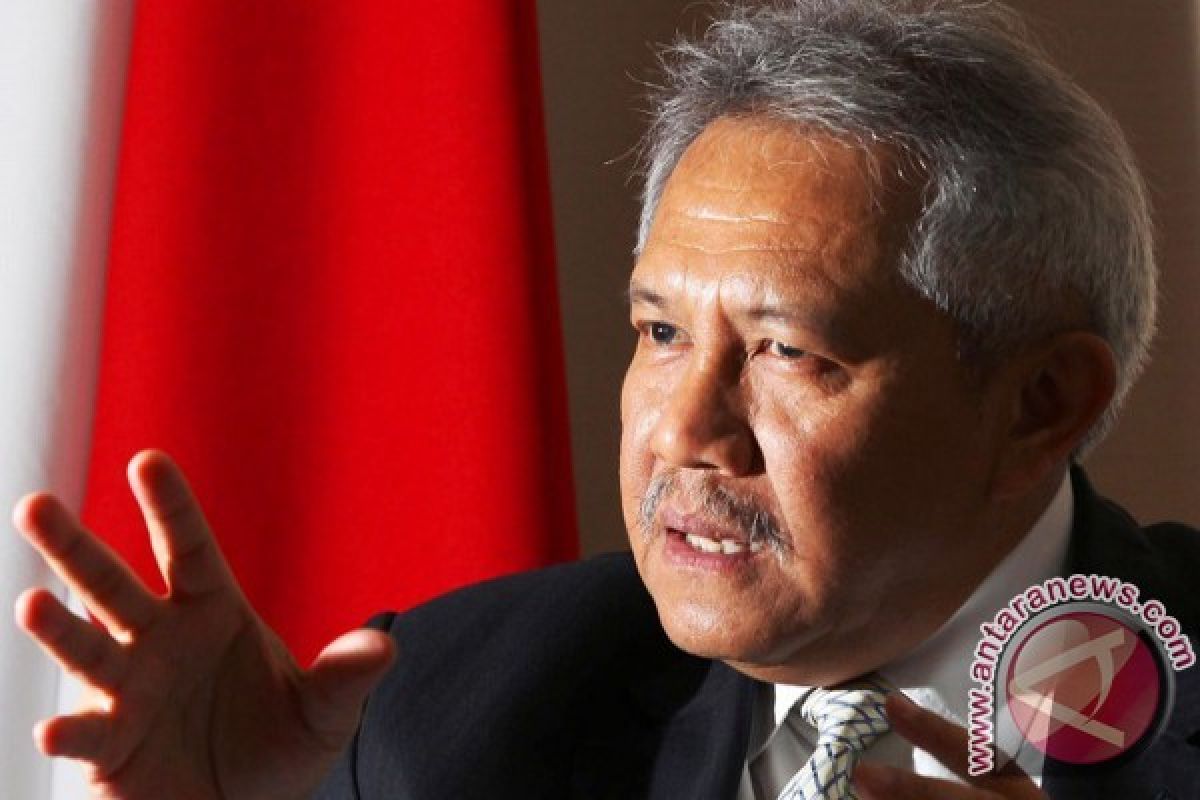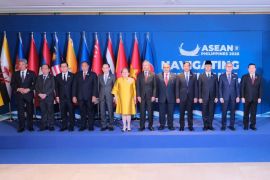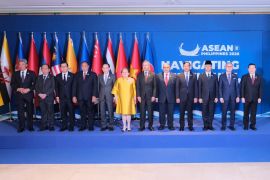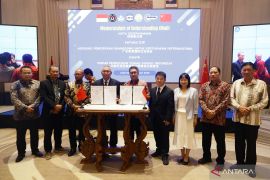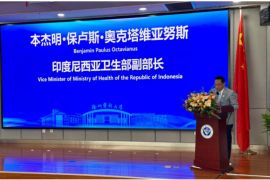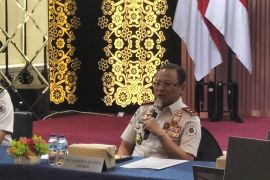When we have no enemies, the economic sector must play a role. So, if we pay people for just sitting at the overseas representative offices and doing nothing, this country will suffer losses.Jakarta (ANTARA) - Former Indonesian Ambassador to China, Sugeng Rahardjo, urged all the Indonesian diplomats around the world to help resolve a current account deficit by not letting themselves get trapped in a sectoral ego and protocol affairs during their overseas postings.
"Do not presume that an endeavor to increase trade cooperation is just the responsibility of the Trade Ministry, not the Ministry of Foreign Affairs (MoFA)," he said here on Monday when asked how to optimize the role of Indonesian diplomats.
Related news: China vows to meet Indonesia's request to narrow trade deficit Indonesian diplomats do not merely represent the MoFA. Instead, they represent all the stakeholders of the nation. Therefore, their presence should help Indonesia gain maximum benefit through trade and economic cooperation, he said.
According to Rahardjo, who was assigned as the Indonesian Ambassador to South Africa before heading the Indonesian Embassy in Beijing, there are at least four leading indicators for measuring the success of overseas Indonesian representative offices.
The leading indicators constantly enhance trade cooperation, with increased investment for both sides, as well as enjoy an improvement in the tourism sector and the transfer of technology. "These four leading indicators are enough," he said.
In achieving these goals, adhering to the "free and active" foreign policy seems to have become an old story because what is more important in this 21st century is how we can assist the government to ensure the absence of a current account deficit in the future.
Trillions of rupiah that the government spends for financing some 140 overseas representative offices in five continents must get returned through economic and trade activities.
To this end, the Indonesian embassies should be responsive to the availability of trading opportunities.
"If trading opportunities are available but our embassies look passive because they think that trade-related matters are the Trade Ministry's responsibility, I think it is definitely wrong because opportunities will not come twice," he said.
He also deplored the dissolution of the directorate general of overseas economic cooperation at the Indonesian MoFA because this ministry holds political positions so that it now prioritizes the political and legal fields.
"When we have no enemies, the economic sector must play a role. So, if we pay people for just sitting in the overseas representative offices and doing nothing, this country will suffer losses," he said.
Sugeng Rahardjo said when he headed the Indonesian Embassy in South Africa, he had helped sell 10,000 units of Avanza vans to be used as taxicabs during the 2010 World Cup in the country.
As a result of this, Astra's automotive manufacture also saw a demand from South Africa. "If all Indonesian representative offices can do the same, I believe there will be no current account deficit," he said.
During his ambassadorial posting in Beijing, he said he had put pressure on China to open its market for several Indonesian commodities that it had banned, including the edible bird's nest, agarwood, arowana (Screlopages formosus), and mangosteen.
In the bird's nest trade, Indonesia exported 70 tonnes of bird's nest worth Rp4 trillion to China last year while its export quota was recorded at 150 tonnes, said Rahardjo, who is currently the President Director of publicly listed tire maker Gajah Tunggal Tbk.
He said he also resolved China's imposition of tax worth US$5 million on Garuda Indonesia for 12 years. At that time, he questioned the Chinese Government on its tax policy on Garuda while it recognized Indonesia as its good friend.
He then "threatened" to adopt a reciprocal policy on China's airlines serving flights to Indonesia.
"It is not too long to wait for China's request for negotiating the tax issue, and it can be solved. It means that all problems can be resolved if we have a keenness and the goodwill to resolve them," he said.
As a former Indonesia ambassador who had served the nation and the state's interests for many years, Rahardjo urged the Indonesian diplomats to leave what he called the "Napoleon style" or feeling of being respected as the state's envoys.
"Ideally, the state's envoys must be down to earth. They must be able to gain maximum benefit from the availability of opportunities abroad for Indonesia," he said.
EDITED BY INE
Related news: Government directs sights on investment to improve trade deficit
Related news: All countries experience a slowdown in exports: trade minister
Translator: Atman Ahdiat, Rahmad Nasution
Editor: Fardah Assegaf
Copyright © ANTARA 2019
